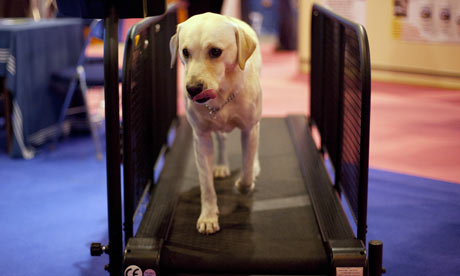
pets are bad for the planet. They consume vast amounts of precious resources, produce mountains of noxious waste – and they can be a disaster for wildlife
Lily's Kitchen and its range of anthropomorphised pet "recipes" represent the somewhat rarefied summit of the UK's pet food industry, which is now said to be worth close to £2bn a year
In recent years, and despite the economic downturn, the pet food industry has witnessed a move towards "premium products", but the market is still dominated by products made with ingredients that, frankly, can send a shudder down any owner's spine. "Hydrolysed feather meal", "derivatives of vegetable origin", "ash" and "animal derivatives" are just some of the delights routinely found in pet food.
Ben Helm, the sales and marketing director of Golden Acres, the UK's largest manufacturer of own-brand pet foods. The company owns Lancashire's largest arable farm and its on-site factory produces 70,000 tonnes of pet food a year, exporting to 37 countries around the world. By most measures, it's a huge operation, but it's a doggie biscuit in scale compared with the four leading pet-food manufacturers – P&G, Nestlé, Mars and Colgate-Palmolive – which, between them, are thought to account for more than 80% of the world's pet-food market.
the Pet Food Manufacturers' Association. It says: "So far as we can tell, our industry uses 50,000-150,000 tonnes of mostly 'broken rice' [a byproduct of the milling process] a year. This compares with rice imports for human consumption of around 450,000 tonnes in the UK."
children from households with pets are found to have stronger immune systems and take fewer days off school. People with pets make fewer visits to the doctor – 21% less for elderly people.
Archaeology has shown that we have been living with companion animals for at least 12,000 years
the UK's 7.7 million cats kill around 188 million wild animals a year
an estimated 250,000 tonnes of dog faeces are deposited on our streets and in our parks each year
It is calculated that 100 tonnes of dog shit is left on Richmond Park in London each year alone
in San Francisco, city officials say that dog faeces now account for 4% of the municipal waste sent to landfill each year – the same level as used nappies.
No comments:
Post a Comment